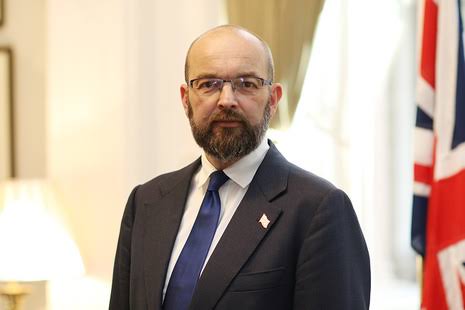
British Minister for Africa, James Duddridge, has said the disturbing trend of violence unleashed on Nigerians by the Boko Haram sect and allied groups is a complex phenomenon that requires varied approaches to resolve.
Duddridge said this while fielding questions from reporters on Tuesday, when he led a delegation to pay a courtesy visit on the Minister of Foreign Affairs, Geoffrey Onyeama, in Abuja.He said the United Kingdom is a strong ally of Nigeria in the efforts to mitigate the challenges posed by terrorism and insurgency.
He stated, “The situation is massively complex and no partnership is going to resolve the multiplicity of problems whether it is Boko Haram or Daesh or a number of other issues. In the UK you have a strong partner across the full gamut of issues, so, it is not just about intelligence and hard security and military, it is about societies, it is about humanitarian support, it is about education and development partnership.
“It is not an end game, we don’t get to a point where we would say ‘ this is the end of our relationship with Nigeria,’ because we got what we want, we set a higher bar, we are long –term partners.”
Speaking earlier, Onyeama noted that the relationship between the UK and Nigeria is important on the African continent not just because Nigeria is a big and populous country but also because of the role that Nigeria plays in the African region.
He said both countries will deepen post COVID-19 relations and work together to tackle climate change as well as realize the objectives of the Africa Continental Free Trade Agreement.
Onyeama decried the complex nature of the challenges the country was facing, especially in the North-East due to the unconventional nature of the war against terrorism.
“It is not a conventional war, where the enemy is readily identifiable; it is asymmetrical warfare, and we are dealing with very difficult situations. We have an intelligence fusion unit with our partners -the US, UK, France,’’ he said, adding that intelligence sharing will continue to help.
Onyeama also noted that there was multiplicity of issues to address such as deradicalisation, education, jobs, girl-child education and so many others needed to resolve the challenges of terrorism.



